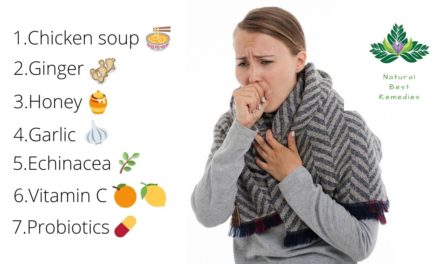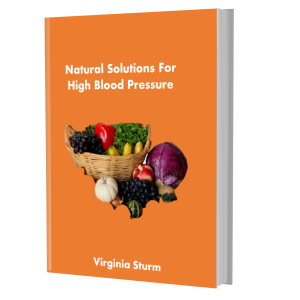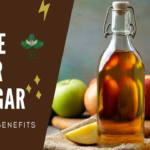With six real benefits for our health, ginger has found its way into the kitchens and medicine cabinets of countries around the world.
In this post, we are going to see what those properties are, how we can take ginger, and very importantly, who should be careful when taking ginger, by the way.
Do you know which is the country in the world that produces the best quality ginger?
When we add ginger in the form of a condiment to a soup, a broth, a stew, and a salad, to have a fresh dish that contains ginger or when we add a little ginger in sushi or when we take ginger supplements, we are supporting our health by very important levels.
There are six properties of ginger that are key to our health.
Ginger is a digestive stimulant, and it is an anti-inflammatory, antiemetic, antimicrobial, vascular protector, and anticancer.
Ginger stimulates the digestive process from the first step with the contact of food with the mouth.
When we add ginger to dishes, we stimulate the taste glands, and that is why the flavors of food are more intense; it is also essential to know that ginger stimulates the production of gastric juices and thus helps the breakdown or breakdown of food, especially of proteins.
That is why ginger is very interesting for people who have slow digestive processes, people who feel that their abdomen swells when they eat, and it takes many hours to do the complete digestive work. For this reason, certain people who we will see at the end should avoid it.
Its anti-inflammatory properties ginger is very interesting for people with arthritis, osteoarthritis, joint pain, or allergies such as asthma, processes, or diseases that have an inflammatory basis.
With the intervention of ginger, the production of all those molecules of the cascade of inflammation that leads to the production of swelling, pain, redness, or functional limitation is reduced.
Something that ginger is so well known for today is its antiemetic effect, that is, for its ability to prevent and control nausea and even vomiting.
It is said that ginger is a broad spectrum antiemetic, which is why it can help us prevent and control traveler’s nausea, those that are produced by movement, for example, when we are driving.
Nausea associated with surgery, nausea associated with chemotherapy, specific chemotherapy protocols, and morning sickness.
There are multiple studies that support all these effects that have shown that ginger has a direct mechanism of action on the digestive tract, blocking the areas that trigger these unpleasant sensations, and a possible central mechanism of action, at the level of the brain blocking the sites. Of the brain that is triggering nausea and vomiting.
Food studies are very complex and hence sometimes apparently contradictory conclusions result, which is why it is concluded that ginger is not effective in these cases and reality what happens is that there are many factors participating in which it costs a lot draw a clear conclusion and also that sometimes when a result is observed that does not have a marked difference it is concluded that it is not practical, but both scientific studies and evidence from clinical experience support the use of ginger as an antiemetic.
Especially pregnant women must be careful not to use ginger in the long term and without the supervision of a doctor.
In general, ginger powder, as a supplement, is also an effective and safe tool for the control and prevention of nausea.
The fourth beneficial effect of ginger is its antimicrobial, antiviral, antibacterial, antifungal power, that is, its ability to protect us from attack by viruses, bacteria, and fungi.
That is why taking an infusion of hot water with lemon and ginger helps us when we have infections of the upper airways, pharyngitis, for example, or a cold, it helps to appease inflammation, calm and also helps us fight those bacteria or viruses that may be causing us that discomfort.
The fifth, Another reason why we can consider ginger a very interesting ally for our health is that it is a cardiovascular protector, and this role is exercised in different ways due to its anti-inflammatory effect, which we have seen before, for being an antioxidant, for help control the levels of fat in the blood, cholesterol and triglycerides and something fundamental because it reduces the oxidation of LDL cholesterol.
We will talk about cholesterol in other songs, and from that role of bad or good LDL cholesterol with respect to HDL cholesterol, I will tell you that cholesterol is not the bad one in the movie, nor not even LDL cholesterol yes no LDL cholesterol Oxidized, what is it that damages our vessels, our arteries, our veins, and our heart.
There is another reason why ginger is a cardiovascular protector, and it is because it is an anticoagulant food.
When we have a hemorrhage from a wound, a cut, a substance called thromboxane is released that warns the platelets to gather in that area that is damaged, and they pile up one on top of the other and thus build a plug that stops the bleeding. On the contrary, when the blood vessel is healthy, it is fine, there is no problem, a substance called prostacyclin is released, which what it does is inhibit this union of platelets, prevent that plug from forming.
Ginger has been seen to have an anticoagulant effect because it inhibits the production of thromboxane, and also by another mechanism that is a fibrinolytic effect, an action in the dissolution of the plugs, the small sections that may already be formed.
This is something that other foods share, such as garlic or onion, and that is why these foods are very interesting for people who have a tendency to produce thrombosis or some disease or cardiovascular damage to their heart or blood vessels.
In the sixth place, there is a very important effect of ginger, and it is its ability to protect us from the development of cancer.
On the one hand, that anti-inflammatory and antioxidant effect, what are the signals are the pathways that lead to the production of tumors, tissue damage, cell alteration, and their transformation into cancer cells and also because it protects us from carcinogens contained in food.
It has also been observed that ginger itself has antitumorigenic properties; that is, it is capable of preventing the production of tumors, the alteration, and the accumulation of cells that cause cancer.
Even more beneficial effects of ginger have been described; it has been seen how it is beneficial in situations of diabetes, osteoarthritis, or discopathy, or other alterations that involve the cartilage, even also in cases of nervousness, hyperactivity, difficulty concentrating, and anxiety.
Although there is no scientific evidence and there are no scientific studies that support this, there is clear clinical evidence from the efficacy of ginger in all those situations that involve mucus, plugging, or inflammation, such as sinusitis, colds, bronchitis; all these processes of the respiratory system that have an excess of mucus attached, in these cases, ginger acts as a very interesting, very effective natural descaler, and that is of great help for people who are going through these situations.
As you can see, we can call ginger food medicine; it is a substance that gives flavor to our dishes, a very characteristic flavor, and also a very particular aroma that also helps our health on many levels.
Bear in mind that these beneficial effects may vary depending on the geographical area where the ginger is produced and its mode of presentation, if it is fresh ginger or if we use dehydrated ginger in powder because that makes the content of vitamins, minerals, enzymes vary. Fatty acids, antioxidants, and something specific to ginger, essential oils, gingerols, and shogaols.
By use: when we use dehydrated ginger powder, which we notice is spicier, they have a more significant anti-inflammatory effect, that is because dehydrated ginger is richer in shogaols than in gingerols, in fact, shogaols are compounds of ginger that are produced when gingerols are dehydrated, or fresh ginger is more stimulating to digestion because it has a higher gingerol content.
For example, both fresh and dehydrated ginger have antiemetic properties because both gingerols and shogaols have that preventive and controlling effect on nausea and vomiting.
Clinical trials and the centuries-long tradition of using ginger give us a lot of confidence when it comes to including it in our pantry to give a special touch to dishes or in our medicine cabinet as a supplement.
Even so, care must be taken in certain circumstances; people who have digestive ulcers or processes of hyperactivity or even gallstones should not take ginger.
They should NOT take ginger without consulting a professional, people who are taking any anticoagulant or antiplatelet treatment, the use of ginger in children is not recommended, and the use of ginger in pregnant women for long periods of time and without supervision is not recommended. In medicine, in other situations, we can take ginger in supplement form or add a touch to the dishes.
For example, grated ginger in a soup, in a vegetable cream, in a stew, some rallAduras in the salad or make ourselves an infusion with ginger that we can drink hot or cold, letting it rest and then living it throughout the day.
To our question, do you know which country in the world produces the best quality ginger? It’s the Jamaican Ginger.









![GINGER benefits [Uses and contraindications]](https://naturebestremedies.com/wp-content/uploads/2021/06/GINGER-BENEFITS-USES-AND-CONTRAINDICATIONS-150x150.png)



